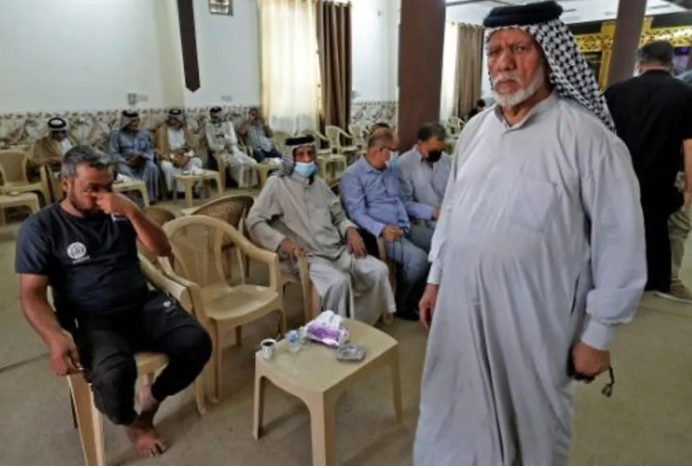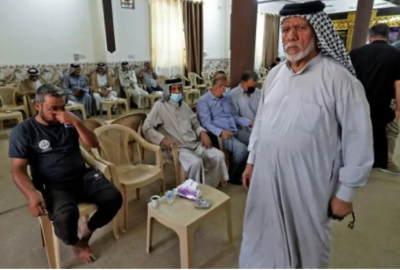Iraqi Prime Minister Mustafa al-Kadhimi announced on Saturday, two days before his official visit to Washington, the arrest of all members of the "terrorist" network that "planned and executed" the suicide attack that took place in Baghdad on Monday, resulting in the deaths of 30 individuals and injuries to over 50 others. Al-Kadhimi added in a tweet that those responsible for the attack, claimed by the Islamic State, would be presented "today before the law and before our people," referring to confessions that are set to be broadcast at an unspecified time, according to a security source.
On Monday evening, a suicide bombing shook the al-Wuhaylat market in the densely populated and impoverished Sadr City, stirring anger and sorrow among Iraqis, especially since the majority of the victims were children shopping in preparation for Eid al-Adha. This incident raised questions about the ability of security forces to curb similar attacks orchestrated by the Islamic State, which Iraq officially declared defeated in 2017, yet still maintains cells in mountainous and remote areas.
In early May, 18 people were killed, mostly security personnel, in a series of attacks carried out by jihadists in various regions of Iraq, while 32 individuals died in a double suicide bombing in central Baghdad in January, which was also claimed by the jihadist group.
This comes as U.S. President Joe Biden is set to receive Iraqi Prime Minister Mustafa al-Kadhimi on July 26 in Washington, amid discussions between Iraq and the United States to establish a timeline for the withdrawal of international coalition forces, a primary demand of Iran's allies in the country.
The international coalition, which was targeted by a drone attack in Kurdistan on Friday morning, provides support to Iraqi forces in their fight against the Islamic State. Since the beginning of the year, U.S. interests in Iraq have been targeted in around fifty attacks. Western military and diplomatic officials in Iraq view these attacks as not only posing a threat to the deployed forces but also endangering their ability to combat the Islamic State.
Approximately 3,500 foreign soldiers remain on Iraqi soil, including 2,500 Americans, but the process of their withdrawal may take years.




